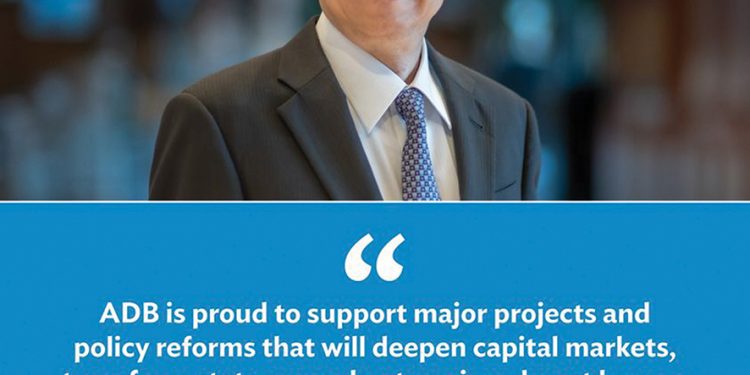Asian Development Bank (ADB) President Masatsugu Asakawa, in a meeting today with Georgian Prime Minister Irakli Garibashvili, said ADB plans to step up its support for Georgia’s development as it diversifies its engagement with the Caucasus nation.
“ADB is proud to support major projects and policy reforms that will deepen capital markets, transform state-owned enterprises, boost human capital, and enhance climate resilience,” Asakawa said, on an official visit to Georgia this week.
Since Georgia joined ADB in 2007, the bank has supported the government’s ambitious water and transport infrastructure programs, including once-in-a-century projects such as the East–West Highway and North–South Road Corridor.
These projects are helping Georgia capitalize on its strategic location and establish itself as a regional transport and trade hub. Mr. Asakawa commended Georgia for its active role in promoting regional cooperation and integration through the Central Asia Regional Economic Cooperation (CAREC) Program, a partnership of countries and development partners working together to promote sustainable development.
As the bank enters a new phase of engagement with Georgia, ADB is working to advance development across a broader range of areas. These include energy security and independence, and the bank is exploring options with the government around innovative energy storage.
As Asia and the Pacific’s climate bank, ADB is also committed to supporting Georgia’s transition to a green economy while fostering a more resilient and inclusive society. This aligns with the government’s Vision 2030 and its climate strategy and action plans.
On Thursday, Mr. Asakawa joined Mr. Davitashvili and senior officials from countries across central and west Asia in attending the 22nd CAREC Ministerial Conference, which is being held in Tbilisi for the first time. The city will also host ADB’s annual meeting in May 2024.
Since Georgia joined ADB, the bank has become one of the country’s largest multilateral development partners providing public and private sector loans, grants, and technical assistance of about $4.7 billion.
ADB to Step Up and Diversify Support for Georgia’s Development
Recommended
Highlights
Trending
Experience Seamless Connectivity with Silknet eSIM in Georgia
Why Silknet's eSIM could be your top choice in Georgia Since its introduction, eSIM technology has become...














